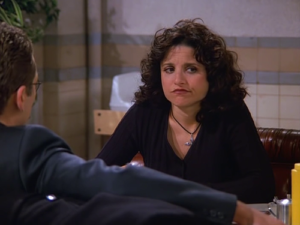I didn’t realize there was so much bad sex out there until I started book reviewing in the mid-1990s for the Detroit Free Press where my portfolio included literary, commercial and genre fiction. Though there’s an annual prize given in England to bad sex writing—The Literary Review Bad Sex in Fiction Award—I hadn’t previously paid much attention to the problem. But as the books arrived at my door by the boxload, I began to realize that a lot of writers, even good ones, were sexually inadequate. On the page, that is.
 Time after time I’d find myself reading an involving story of one kind or another and suddenly there would be a sex scene that made me wince because it was clumsy, improbable, or even grotesque. I was surprised and disappointed that writers I admired and enjoyed seemed to fall apart when it came to writing sex scenes. Whether it was lack of practice in this particular aspect of their craft, or embarrassment, or even being too turned on to have enough objectivity, I couldn’t say.
Time after time I’d find myself reading an involving story of one kind or another and suddenly there would be a sex scene that made me wince because it was clumsy, improbable, or even grotesque. I was surprised and disappointed that writers I admired and enjoyed seemed to fall apart when it came to writing sex scenes. Whether it was lack of practice in this particular aspect of their craft, or embarrassment, or even being too turned on to have enough objectivity, I couldn’t say.
But I did start to notice two major trends in bad sex writing and I still see these problems cropping up: problems with timing, and depersonalization.
Many authors don’t seem to understand that timing is just as important in fictional sex as in real sex. If a sex scene is introduced, where does it fit in the arc of the story? Does it move the plot along, or does it slow it down? Does it add depth to the characters and story or is it distracting? Not enough authors ask themselves when’s the best place for a sex scene or even if it’s organic to the work.
I goofed in an early version of my novel The German Money by putting a sex scene early in chapter one. I thought it illuminated the inner state of my narrator, but a writer friend thankfully pointed out that it would distract readers from the character’s dark musings about his very dysfunctional family. As soon as she said it, I knew she was right, so I moved the scene several chapters along and used it as a short flashback. It worked.
A more serious problem than timing and appropriateness in sex scenes is that two people who’ve been fully individualized characters before the scene fade away and become little more than a jumble of primary or secondary sex characteristics. We end up reading about parts having sex, rather than people. Some writers seem so determined to be un-puritanical that they forget they’re writing about human beings who have feelings aside from lust or passion. Sex means something more than just itself, or at least it can be something more than just itself. And if it’s casual or “meaningless” sex, then that should be clear in the scene, however it’s narrated.
As my first editor at St. Martin’s Press said: “Sex reveals who people are in unique ways–it’s crucial for authors to get it right.”
Lev Raphael is the author of 25 books in genres from mystery to memoir. This blog is adapted from his guide to the writing life, Writer’s Block is Bunk.

